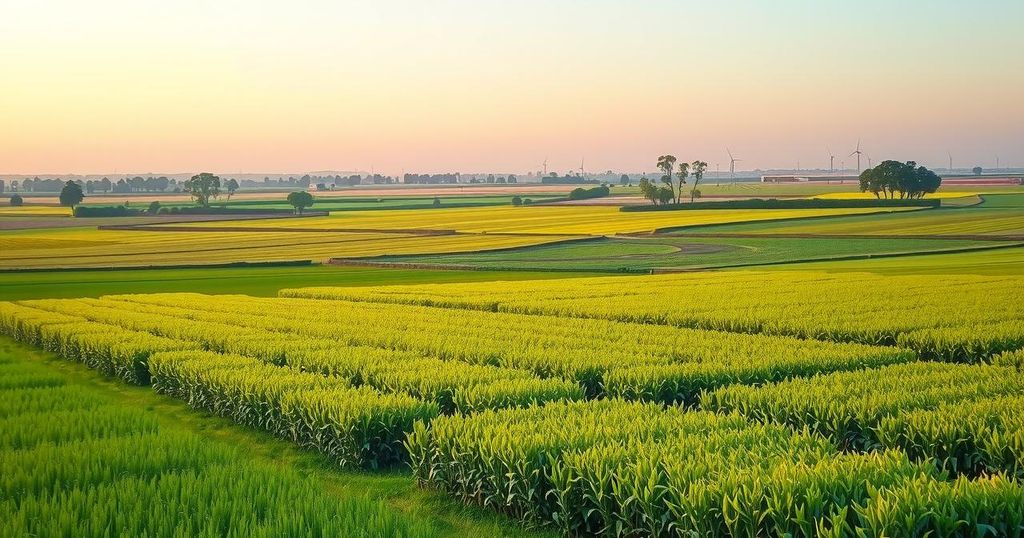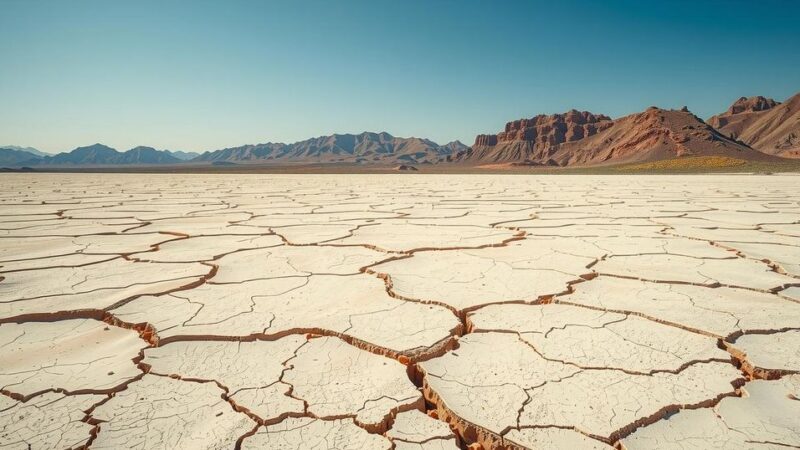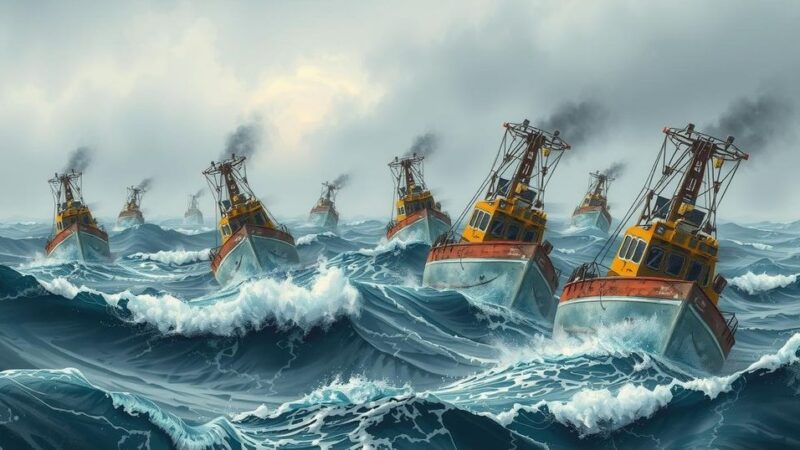Peruvian farmer Saul Luciano Lliuya is suing German energy company RWE in a landmark climate lawsuit over the flooding risk from Palcacocha lake, exacerbated by glacier melt. He requests compensation for protective measures, citing RWE’s significant carbon emissions. This case reflects a growing trend in climate litigation, emphasizing corporate accountability for climate change impacts on vulnerable communities.
In a landmark climate lawsuit underway in Germany, Peruvian farmer Saul Luciano Lliuya is suing RWE, a major German energy firm, for the looming threat posed by an overflowing lake near his home in Huaraz, Peru. The lake, Palcacocha, is currently at risk of breaching due to the rapid melting of glaciers, a crisis exacerbated by climate change.
Lliuya resides approximately a mile below Palcacocha, which has swelled to 35 times its normal water capacity. In the event of a breach, Lliuya’s home and those of around 50,000 others in Huaraz could be submerged. Supported by the nonprofit Germanwatch, Lliuya has cited RWE’s historical contribution to greenhouse gas emissions, claiming the company is responsible for 0.47% of all human-generated emissions since its inception in 1898.
Lliuya is pursuing compensation for 0.47% of the $18,000 estimated cost to construct a protective dyke. This case marks a significant milestone in a decade-long legal journey for Lliuya and represents the first among nearly 50 similar climate lawsuits filed worldwide against major fossil fuel corporations.
While RWE refutes liability, arguing that climate change is a collective issue necessitating governmental action, the lawsuit could set a precedent for similar claims globally, particularly as many nations share property laws. RWE insists that determining accountability in such cases could open floodgates for legal actions against average individuals for their carbon footprints.
The threat of disaster is palpable in Huaraz, which previously experienced a horrific landslide triggered by an earthquake in 1970 that resulted in around 25,000 fatalities. Communities across the Peruvian Andes are facing numerous climate-related adversities, such as contamination of local waterways and alterations in seasonal patterns affecting agriculture.
Lliuya has expressed deep concerns about the potential for catastrophic consequences, stating, “It is scary, the risk from climate change…Even the rivers that pass through the city have risen. There is a lot of fear.” Francesca Mascha Klein, a lawyer associated with Germanwatch, emphasized the need for polluters to be accountable, advocating for the safety of Lliuya and his community, asserting that “No one should live in fear of losing their home due to the climate crisis.”
The court case is taking place in Hamm, Germany, near RWE’s headquarters, and is anticipated to unfold over several weeks.
The lawsuit brought by Saul Luciano Lliuya against RWE highlights the growing trend of individuals and communities holding corporations accountable for their contributions to climate change. This case serves as a pivotal point in climate litigation, as it pushes for financial responsibility from polluters while illustrating the tangible risks faced by vulnerable communities. The outcome may influence future climate-related legal claims and reshape corporate accountability regarding environmental damage.
Original Source: www.gpb.org






